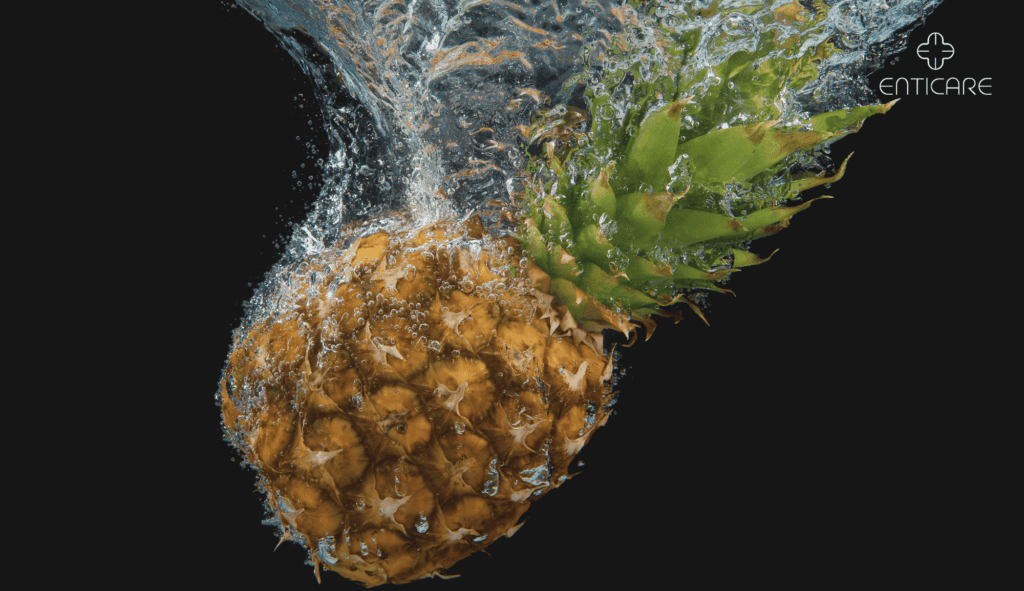Pineapple is a delicious and refreshing tropical fruit enjoyed worldwide for its sweet, tangy flavor and nutritional benefits. However, for some people, eating pineapple can lead to uncomfortable or even dangerous allergic reactions. An allergy to pineapple, although rare, can cause various symptoms that range from mild to severe and can manifest shortly after exposure. Specific compounds in pineapple, such as bromelain and profilin, are known to trigger these allergic reactions, often referred to as bromelain allergy. Understanding the facts about pineapple allergy, recognizing its symptoms, knowing how to get a proper diagnosis, and identifying which foods to avoid can help manage the condition effectively.

What Is Pineapple Allergy?
A pineapple allergy occurs when your immune system mistakenly identifies certain proteins in pineapple as harmful. The body responds by releasing chemicals like histamine, which trigger allergic symptoms.
- How Common Is Pineapple Allergy: Pineapple allergies are relatively uncommon but can affect individuals who are allergic to bromelain, a protein enzyme found in pineapple. Bromelain has beneficial properties, but some people’s immune systems recognize it as an allergen.
- Cross-Reactivity with Other Allergies: People with pineapple allergies might also have reactions to other tropical fruits, such as bananas, kiwi, or mangoes. This phenomenon, known as pineapple allergy cross reactivity, happens when proteins in different fruits are similar enough to trigger an immune response. While symptoms are often mild, there is a risk of severe reactions like anaphylaxis, so it is important to avoid such foods.
- Allergy vs. Intolerance: It’s important to differentiate between a pineapple allergy and an intolerance. While allergies involve an immune response, intolerances typically result in digestive issues without triggering the immune system.
Recognizing Pineapple Allergy Symptoms
Symptoms of a pineapple allergy can vary depending on the person. In some cases, reactions can be mild, while in others, they can be severe and potentially life-threatening.
- Mild to Moderate Symptoms: People with a mild pineapple allergy might experience symptoms such as itching or swelling of the lips, tongue, and throat after consuming the fruit. In some cases, a person might also develop hives or a skin rash. Oral allergy syndrome (OAS) can also occur, where the proteins in pineapple cause localized symptoms in the mouth and throat due to cross-reactivity with certain pollens.
- Digestive Issues: Pineapple can sometimes cause gastrointestinal symptoms, including nausea, vomiting, diarrhea, or stomach pain. These symptoms may appear soon after eating pineapple or pineapple-containing products.
- Severe Reactions (Anaphylaxis): In rare cases, a pineapple allergy can cause a severe reaction known as anaphylaxis. Symptoms of anaphylaxis include difficulty breathing, swelling of the throat, a rapid drop in blood pressure, loss of consciousness, and anaphylactic shock. Anaphylaxis is a medical emergency and requires immediate treatment with epinephrine.
Learn more about food allergy symptoms here.
Oral Allergy Syndrome (OAS)
Oral Allergy Syndrome (OAS) is a specific type of food allergy that occurs when the immune system reacts to proteins found in certain fruits, vegetables, and nuts. For those allergic to pineapple, OAS can manifest as itching, swelling, and tingling in the mouth, throat, and lips. This reaction is typically triggered by consuming raw or uncooked pineapple and can be more pronounced in individuals who are also allergic to birch or banana tree pollen.
OAS is often linked with other allergies, such as hay fever or asthma, and can be triggered by a variety of foods, including apples, pears, and cherries. Symptoms of OAS can range from mild to severe and may include:
- Itching or swelling of the mouth, throat, or lips
- Tingling or numbness in the mouth or throat
- Redness or inflammation of the skin
- Hives or welts on the skin
- Stomach cramps or diarrhea
If you suspect you have OAS, it’s crucial to consult with an allergist or healthcare professional for a proper diagnosis and treatment plan. They may recommend an oral food challenge or a skin prick test to confirm the diagnosis and develop an appropriate management strategy.

How to Get a Proper Pineapple Allergy Test
If you suspect a pineapple allergy, it’s important to consult a healthcare professional for an accurate diagnosis. Allergy testing can confirm whether pineapple is the cause of your symptoms and help you manage your condition more effectively.
- Consulting an allergist: An allergist can evaluate your medical history, perform a physical examination, and order diagnostic tests to determine whether you’re allergic to pineapple. One such diagnostic test is the oral food challenge, where you consume pineapple under medical supervision to observe any allergic reactions.
- Skin Prick Test: The skin prick test is one of the most common methods of diagnosing food allergies. During this pineapple allergy test, a small amount of pineapple extract is applied to your skin, and your reaction is monitored. If a raised bump or redness occurs, this indicates an allergic reaction.
- Blood Test for Specific IgE: A blood test can measure the levels of immunoglobulin E (IgE) antibodies in your bloodstream. Elevated IgE levels specific to pineapple indicate an allergy. Your doctor might use a combination of the skin prick test and the blood test to confirm the diagnosis. The RAST test is another method that can be used to detect specific IgE antibodies. There is also a risk of a severe allergic reaction during the diagnostic process, so it is crucial to have medical supervision.
Foods to Avoid with a Pineapple Allergy
Once diagnosed with a pineapple allergy, it’s important to avoid foods and drinks that contain pineapple or its derivatives. Pineapple appears in many products beyond just the fruit itself.
- Fresh and Processed Pineapple
- Avoid eating fresh pineapple, canned pineapple, and dried pineapple. Pineapple juice is also commonly used in smoothies, cocktails, marinades, and sauces.
- Hidden Sources of Pineapple
- Pineapple is an ingredient in some processed foods and desserts like fruit salads, cakes, pastries, and candies. Always check food labels and ingredient lists for hidden allergens, especially on products labeled as “tropical” or “citrus-flavored.”
- Cross-Contamination Risks
- Be cautious when dining out, as cross-contamination can occur in kitchens that prepare pineapple-based dishes. Inform restaurant staff about your allergy to ensure that your meal is free from pineapple and prepared in a safe manner.

Effective Treatment and Management of Pineapple Allergy
There’s no cure for pineapple allergy, but treatments can help manage symptoms and prevent future reactions. Understanding how to treat an allergic reaction and knowing when to seek emergency care is crucial for managing the condition.
- Antihistamines for Mild Reactions: Over-the-counter antihistamines can relieve mild symptoms like itching, swelling, and hives. Your doctor might recommend keeping antihistamines on hand in case of accidental exposure to pineapple.
- Epinephrine for Severe Allergies: If you’re at risk of severe allergic reactions like anaphylaxis, your doctor will likely prescribe an epinephrine auto-injector (such as an EpiPen). Use the auto-injector immediately if you experience symptoms of anaphylaxis, and seek emergency medical care right away.
- Allergy Action Plan: Work with your allergist to create a personalized allergy management plan. This plan should outline steps to avoid exposure to pineapple, recognize early symptoms, and treat reactions quickly and effectively.
Conclusion: Take Control of Your Pineapple Allergy
Living with a pineapple allergy can be challenging, but understanding the symptoms, diagnosis process, and treatments can help you manage your condition with confidence. If you suspect a pineapple allergy or experience any allergic symptoms after consuming pineapple, it’s crucial to get tested and take precautions to avoid future reactions.
If you’re ready to get expert advice and an accurate diagnosis, schedule an appointment with one of our allergy specialists at Enticare. Don’t wait to take control of your health and live free from the discomfort of pineapple allergy. Let us help you find relief and protect your well-being.

